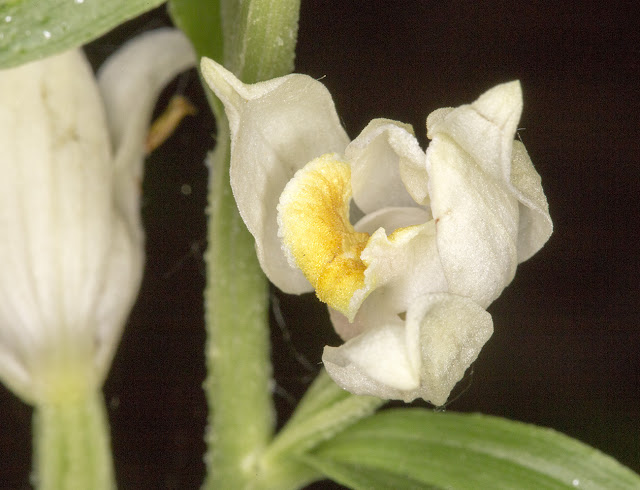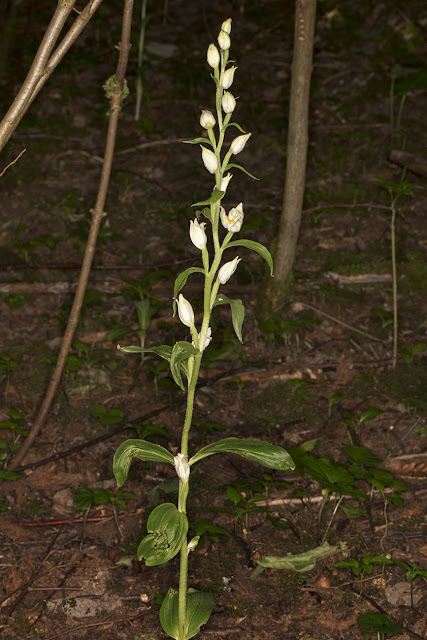 |
| White Helleborine, Cephalanthera damasonium. Flower showing yellow throat. Downe Bank, 11 June 2015. |
Wild orchids are flowering profusely on the chalk banks in Bromley (the London Borough Of, not the town). This is a White Helleborine, one of the more common types, seen in many woods at the edge of pathways, which makes one think that like many plants it prefers the edge habitat. In a place such as that it can have shelter from winds and the worst of the weather, yet not be completely shaded out.
Seldom do the flowers open widely enough to display this yellow throat. But this was a particularly large specimen.
 |
| White Helleborine, Cephalanthera damasonium. Downe Bank, 11 June 2015. |
Usually the flowers stay closed, as most of these are; the plant is self-pollinating.
Near this plant were groups of Common Twayblades and Fly Orchids, both of which are also quite happy in full sun in the open. This Fly Orchid was on a grassy bank.
 |
| Fly Orchid, Ophrys insectifera. Downe Bank, 11 June 2015. |
This one is far from being self-pollinating, and has almost an orchid trademark system. It is disguised as an insect and puts out pheromones that attract digger wasps. When they try to mate with the flower, clumps of pollen grains known as pollinia become attached to the genuine insects and are transferred by them. The plants are quite inconspicuous to the human eye and you need to look carefully to spot them among the grass.
In fact, several of our wild orchids have a disappointing appearance, even close up. Here is one of the Common Twayblades I mentioned earlier.
 |
| Common Twayblade, Neottia ovata. Downe Bank, 11 June 2015. |
A large and healthy specimen, with its single pair of leaves - the "tway blades" - prominently in view, but not exactly a stunner even though it is in full flower.
More orchids next time ...




No comments:
Post a Comment